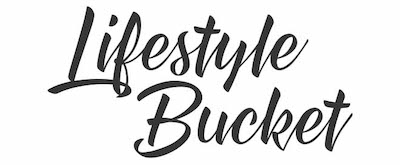Well, for people with little or no proper knowledge about loans, it is understandable if they’d would say that the whole thing is a crap. But don’t we see rich people and, most of them, business people for that matter, use loans to their advantage. The only difference is that they know more about it and they use it properly and thus get the most out of it.[/intro]
In a recent event, Home Credit and Credit Information Corporation made sure that proper info about loan and credit is taken into consideration for the public to know before getting one.

According to data from Bangko Sentral ng Pilipinas, nearly 50% of adult Filipinos have an outstanding debt, while while another 33% had borrowed money in the past.
Many Filipinos go to “non-traditional” loans which normally offer a staggering 20% interest in a short span of time. Making the loan experience quite burdensome. Most of the borrowers of these non-formal lending individuals “embrace” the system since they think that formal financial institutions can’t lend them due to numerous requirements.
In the contrary, the requirements are just basic, but the reward of borrowing from formal credit facilities far outweigh the convenience of low interest and longer terms when using borrowed money to buy equipments, appliances or get cash advance for personal and business usage.
Here are a few things that You, as a borrower, need to consider to get access to loan and credit facilities in the country now:
1. Have a good credit record.
With the country now having Credit Institution Corporation (CIC), a government owned corporation keeping tabs of all the credit history through financial institutions of individuals in the country, it can be easier (or harder) for people to be approved of loans / credits.
That’s why, if you’re a borrower, it is best to think of your ways on how you act towards your loans. Things to consider are if you have delayed or defaulted loans in the past, which will reflect on your history.
For first-timers borrowers in many occasions, have a relatively harder approval rating since there are no history of credit or basis for institutions to take note of.
But there’s good news: Home Credit, for one, can provide loans even to first-time borrowers. As Home Credit also consider the records of CIC of your payments through your telco bills. So if you have good standing on your bills, then, it can be considered for your next purchase of gadgets or appliances.
2. Know your rights being a borrower, and read the fine print for conditions.
Before you sign your loan contract, find out if there are any special conditions, or better yet, benefits that come with your loan. For instance, Home Credit offers the option to avail of insurance along with the loan; a 15 day “cooling-off” period that allows customers to pay back the full loan at no added cost within this time period; and a loan “safety guarantee” that promises full transparency on loan products with no hidden charges.
3. Know your obligations
Credit facilities like Home Credit gives you the chance to avail of loans expecting you will stand on your obligation to pay them.
A due is a due.
Once your loan is approved and signed, remember your dues-that is, know exactly what you owe total, what you owe each month, and for how long. And of course, remember your due dates! “On time, all the time” is a good rule of thumb, but consider paying your monthly dues a few days in advance. That way, you’re protecting yourself from unforeseen hiccups-e.g. technical issues, bank clearing delays that can lead to delays in posting payments which of course leads to penalties (and a blemish on your credit record).
4. Talk to your lender
In extreme, unforeseeable bad cases, you can always talk to the lender.
Even the most responsible borrowers can encounter financial difficulties that can impact their ability to repay. Sudden illness, unemployment, and unforeseen expenses are just some of the things that can derail our loan payments. if ever this happens to you, the last thing you want to do is to hide from your lender, or ignore their calls to remind you of your (over) due dates.
Your best course of action?
Reach out to them, and be transparent about your difficulties. More often than not, they are willing to help-or at the very least, listen. in Home Credit’s case, they even have a special unit in the company which reviews cases of customers experiencing extraordinary financial difficulties, and try to find solutions for loan repayment.
Turn that good credit record into a GREAT credit record. At this point, you may have realized already how big of a role your credit history plays in getting a loan-and how big of a role your handling of your loan plays in further shaping your credit record. Regardless of how small your loan is, missed or late payments can spell bad news for your credit history.
TAKE AWAY
Better be wise on how you use credit. A small loan today can spell a big difference of your financial standing in the future, especially, if you are to make big credits.
For more information, visit www.homecredit.ph.













